Filter by

A Case-Based Guide to Clinical Endocrinology
In A Case-Based Guide to Clinical Endocrinology, Second Edition, a renowned group of distinguished clinicians once again provides stimulating instruction and insights into a wide variety of endocrine topics, teaching readers modern management of the conditions described and offering targeted entry into the literature. Importantly, many of the important elements in the current curriculum for cli…
- Edition
- Ed. 2
- ISBN/ISSN
- 978-1-4939-2059-4
- Collation
- -
- Series Title
- -
- Call Number
- 616.4 CAS c
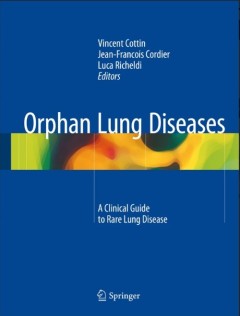
Orphan Lung Diseases : A Clinical Guide to Rare Lung Disease
Orphan Lung Diseases: A Clinical Guide to Rare Lung Disease provides a comprehensive, clinically focused textbook on rare and so-called ‘orphan’ pulmonary diseases. The book is oriented towards the diagnostic approach, including manifestations suggesting the disease, diagnostic criteria, methods of diagnostic confirmation, and differential diagnosis, with an overview of management.
- Edition
- -
- ISBN/ISSN
- 978-1-4471-2401-6
- Collation
- -
- Series Title
- -
- Call Number
- 616.24 ORP
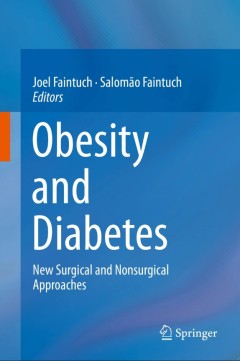
Obesity and Diabetes
This timely and clinically oriented book uniquely addresses the entire spectrum of treatment for severe obesity and diabetes. It thoroughly examines all aspects from robotic surgery to cell therapy, from the latest antidiabetic drugs to endoscopic procedures and devices, from appetite-inhibiting signals and nutrients to gastric arterial embolization. It offers objective and authoritative inform…
- Edition
- 1
- ISBN/ISSN
- 978-3-319-36101-7
- Collation
- X, 282
- Series Title
- -
- Call Number
- -

Energetics of Muscular Exercise
This book discusses the maximal power and capacity of the three major biochemical pathways - aerobic (oxygen consumption), anaerobic lactic (muscle lactate accumulation in absence of oxygen consumption), and anaerobic alactic (phosphocreatine hydrolysis) metabolism - as well as the factors that limit them. It also discusses the metabolic and cardio-pulmonary mechanisms of the dynamic response…
- Edition
- -
- ISBN/ISSN
- 978-3-319-05636-4
- Collation
- 27 b/w illustrations, 20 illustrations in colour
- Series Title
- -
- Call Number
- -

Therapeutic Perspectives in Type-1 Diabetes
This book provides critical insights into and appraisals of recent breakthroughs in type 1 diabetes modulation, with a particular emphasis on the potential impact of current prevention and treatment strategies. It also discusses recent successes and failures in clinical trials. Presenting an comprehensive overview of the disease, it is especially useful for newcomers in the field. It also inclu…
- Edition
- -
- ISBN/ISSN
- 978-981-10-0602-9
- Collation
- 14 b/w illustrations
- Series Title
- -
- Call Number
- -

Endocrinology and Diabetes Case Studies, Questions and Commentaries
This book provides case studies accompanied by questions and commentaries for the specialist registrar in diabetes and endocrinology, to assist with problem-based learning during their training. The case studies range from the everyday to the rare and complicated, presenting a strong foundation for the specialist trainee to prepare them for their qualifying exams and, more importantly, for thei…
- Edition
- -
- ISBN/ISSN
- 978-1-4471-2789-5
- Collation
- 18 b/w illustrations, 19 illustrations in colour
- Series Title
- -
- Call Number
- -
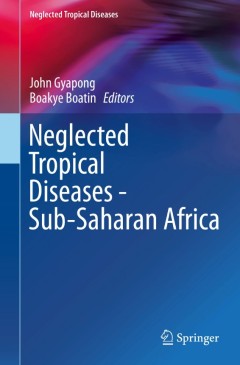
Neglected Tropical Diseases - Sub-Saharan Africa
This book provides an overview on the major neglected tropical diseases (NTDs) occurring in Sub-Saharan Africa, such as Leishmaniasis, Buruli Ulcer and Schistosomiasis. In well-structured chapters epidemiology and biology of these parasitic diseases will be discussed in detail. Further, diagnostics and therapeutic approaches as well as prevention strategies will be reviewed. The book will be of…
- Edition
- 1
- ISBN/ISSN
- 978-3-319-25469-2
- Collation
- XIV, 414
- Series Title
- Neglected Tropical Diseases
- Call Number
- -
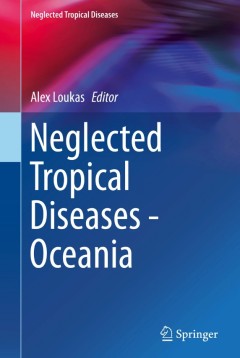
Neglected Tropical Diseases - Oceania
This volume of the Neglected Tropical Diseases (NTD) series covers the most prevalent NTDs in Oceania. This book will discuss in detail pathology, diagnostics and control approaches of selected NTDs in the geographic region. A large part of Oceania’s population lives in poverty and therefore is at high risk for certain parasitic diseases, such as hookworm infection, lymphatic filariasis, stro…
- Edition
- 1
- ISBN/ISSN
- 2194-8275
- Collation
- V, 294
- Series Title
- Neglected Tropical Diseases
- Call Number
- -
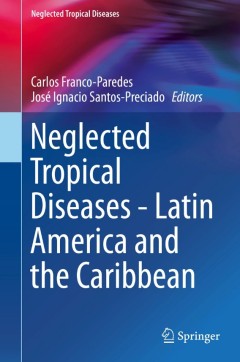
Neglected Tropical Diseases - Latin America and the Caribbean
This book addresses the major neglected tropical diseases (NTDs) – based on their prevalence and the years of healthy life lost to disability – in Latin American and Caribbean countries. These include Chagas disease, leishmaniasis, hookworm infection, and other soil-transmitted helminth infections, followed by dengue, schistosomiasis, leishmaniasis, leprosy, cysticercosis, bartonellosis, Pl…
- Edition
- 1
- ISBN/ISSN
- 978-3-7091-1421-6
- Collation
- VIII, 243
- Series Title
- Neglected Tropical Diseases
- Call Number
- -

Multiple Sclerosis, Mad Cow Disease and Acinetobacter
The aim of this book is to publicise and bring to a wider audience the concept that the cause of two neurological diseases, namely multiple sclerosis (MS) and “mad cow disease” also known as “bovine spongiform encephalopathy” are related through exposure to a common microbe Acinetobacter which is found in human sinuses, on skin and in the soil. An infection is the cause of a neurologica…
- Edition
- 1
- ISBN/ISSN
- 978-3-319-02734-0
- Collation
- XVIII, 200
- Series Title
- -
- Call Number
- -
 Computer Science, Information & General Works
Computer Science, Information & General Works  Philosophy & Psychology
Philosophy & Psychology  Religion
Religion  Social Sciences
Social Sciences  Language
Language  Pure Science
Pure Science  Applied Sciences
Applied Sciences  Art & Recreation
Art & Recreation  Literature
Literature  History & Geography
History & Geography